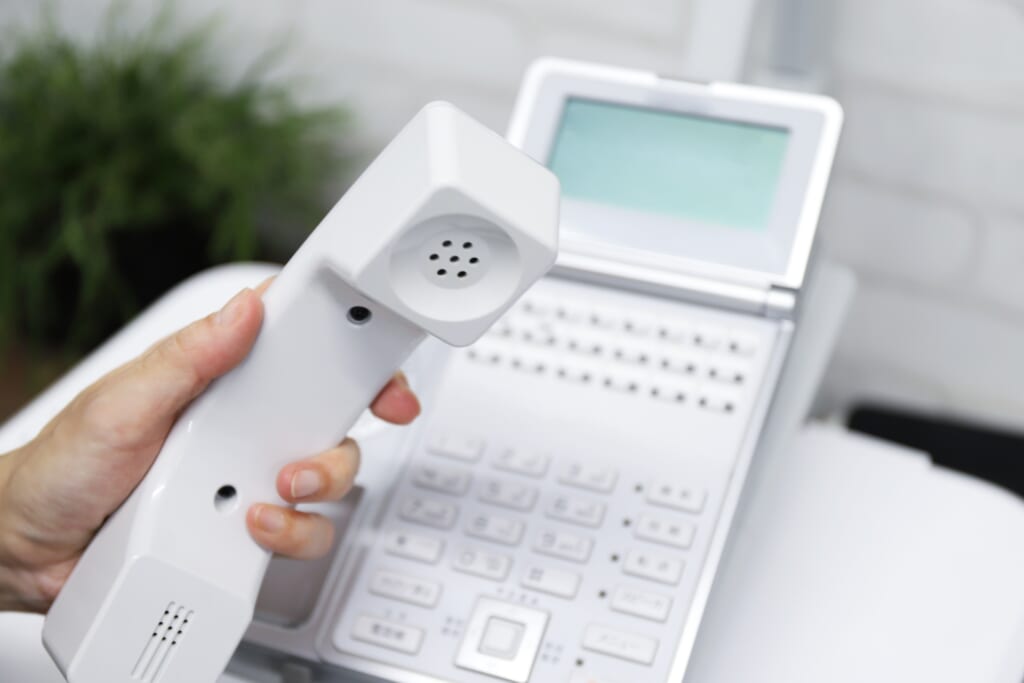A Practical Handbook about Telephone Lines in Japan
Complete Guide to Telephone Lines in Japan

Telephone lines in Japan are globally recognized for their reliability and advanced technology. In Japan, various types of telephone lines, including mobile and landline phones, are used. Mobile phones are particularly convenient and reliable even in remote mountainous areas, making them an essential tool for travelers. On the other hand, landlines offer high-quality voice calls and play a crucial role in businesses and households. Additionally, bundle plans with internet services are available, allowing access to the latest communication technologies. These factors contribute to the convenience and reliability of Japan’s telephone lines. International calling options are also extensive, facilitating smooth communication with overseas contacts.
Explanation of Japan’s Telephone Number System
The Japanese telephone number system typically consists of 10 digits. In some cases, including an area code can extend the number to 11 digits.
Example of a Sapporo phone number: 011-272-8772.
The area code varies by municipality and identifies the region. For example, the common area code in Tokyo is 03, while in Sapporo, in the above example, the area code is 011.
On the other hand, mobile phone numbers start with a three or four-digit prefix and total 11 digits.
For international calls, the country code +81 is used followed by the 10-digit number, omitting the area code.
With the first example, it would then become: +81 11 272 8772.
Understanding these telephone number systems ensures smooth communication both within and outside Japan.
How to Use Landlines and Public Phones
In Japan, using public phones and landlines involves several steps. Public phones accept coins or prepaid cards for making calls. Despite the prevalence of smartphones, public phones are still reliable in emergencies or when your device runs out of battery. Landlines offer cheaper call rates and are suitable for longer conversations. They are also used for international calls. It is important to follow basic etiquette when using landlines at home or in offices.
International Calling Procedures
When making international calls from Japan, it’s crucial to understand the correct dialing procedures. Start by dialing the international call prefix, which is ‘010’ for calls from Japan to overseas. Then dial the country code and area code of the destination. As each country and region has different codes, it’s essential to research beforehand. Finally, dial the recipient’s phone number. Depending on your plan, you might use a carrier code starting with 00 for international rates or opt for VoIP services.
International calls can be expensive, so check your plan’s rates and the expected duration before calling. If using roaming services, understand your contract’s terms and usage limits to avoid unexpected high charges. International calls transcend distance and time constraints, but it is crucial to follow the correct procedures and understand your service agreement.
Types of Phone Lines and Choosing the Right One
Japan has two main types of phone lines: mobile and fixed lines, each with unique characteristics and benefits.
Mobile lines offer widespread coverage and are essential for communication on the go. Major carriers like NTT Docomo, KDDI (au), and SoftBank offer various plans and services.
Fixed lines, used in homes and offices, provide high-quality, stable connections. Providers like NTT East and NTT West also offer internet bundle plans.
Choosing the right phone line depends on your needs. Mobile phones are crucial for communication during travel or emergencies, with coverage and speed being key. Fixed lines are better for quality and cost-effective for home or office use. Regarding office use, if you are thinking of establishing your company in Japan, having a Japanese phone number will also help in building trust with your partners and clients. Feel free to join us for advices regarding this matter, you can check this page or simply call us at this number : +81 11 272 8772
Different carriers offer various plans and services, so it’s important to compare these based on your usage patterns to find the best fit for your lifestyle and business needs.
Comparing Mobile Phone Services
Let’s consider the different mobile phone services in Japan. Several companies offer mobile services, each with unique plans and benefits. Major carriers provide nationwide coverage and stable quality, essential for use across urban and rural areas. Newer carriers might offer more affordable rates. Choices vary based on user needs, including overseas usage and data services. It’s important to compare these options to find the best service for your needs.

Main Carriers and Budget SIM Features
Major Japanese mobile carriers include NTT Docomo, KDDI (au), and SoftBank. These carriers offer extensive coverage and stable services for mobiles and smartphones.
Budget SIMs provide services at a lower cost, allowing users to save on monthly fees.
Plans vary by data and call charges, so you can choose based on your usage style.
Regional Area Codes and Their Use
Japan’s telephone lines are assigned area codes by region, known as city codes. These three-digit numbers at the beginning of a phone number help identify the call’s region. For example, Tokyo’s area code is 03, and Osaka’s is 06. Knowing the correct area code is essential for dialing and avoiding incorrect charges, especially in long-distance and international calls. Correctly using and understanding area codes facilitates smooth communication.
Fiber Optic Phone Services in Japan
Fiber optic phone services are rapidly becoming popular in Japan. This service uses internet lines for voice calls, offering high-quality calls and additional communication features.
The main advantage is the improved quality of voice calls compared to traditional analog lines, with less noise and echo. It also supports two-way communication, allowing for video calls and file sharing.
Additional features include syncing phone books, voice mail, instant messaging, and video call recording. Combining these with high-speed internet makes communication more efficient and connected. Fiber optic services also support international calls, enhancing connectivity with overseas contacts.
As such, fiber optic phone services represent a significant advancement in Japan’s communication landscape, offering versatile and high-quality options for users.
Convenience Store Phone Services
In Japan, convenience stores offer phone services, including the sale of domestic and international phone cards and fax services. Some stores also provide internet terminals for various applications and registrations, making these services highly accessible and convenient.
Conclusion
Japan’s phone lines are known for their advanced technology and reliability. With a range of options like mobile phones, landlines, and internet lines, they are widely used in daily life and travel. Mobile phones are particularly prevalent and offer connectivity even in remote or underground areas. Landlines provide high-quality and stable calls, valued in businesses and households. Additionally, plans often include fiber optic internet, providing fast and stable communication environments. International calling is also well-supported, facilitating smooth global communication. Japan’s diverse and high-quality phone options greatly enhance convenience for users.
